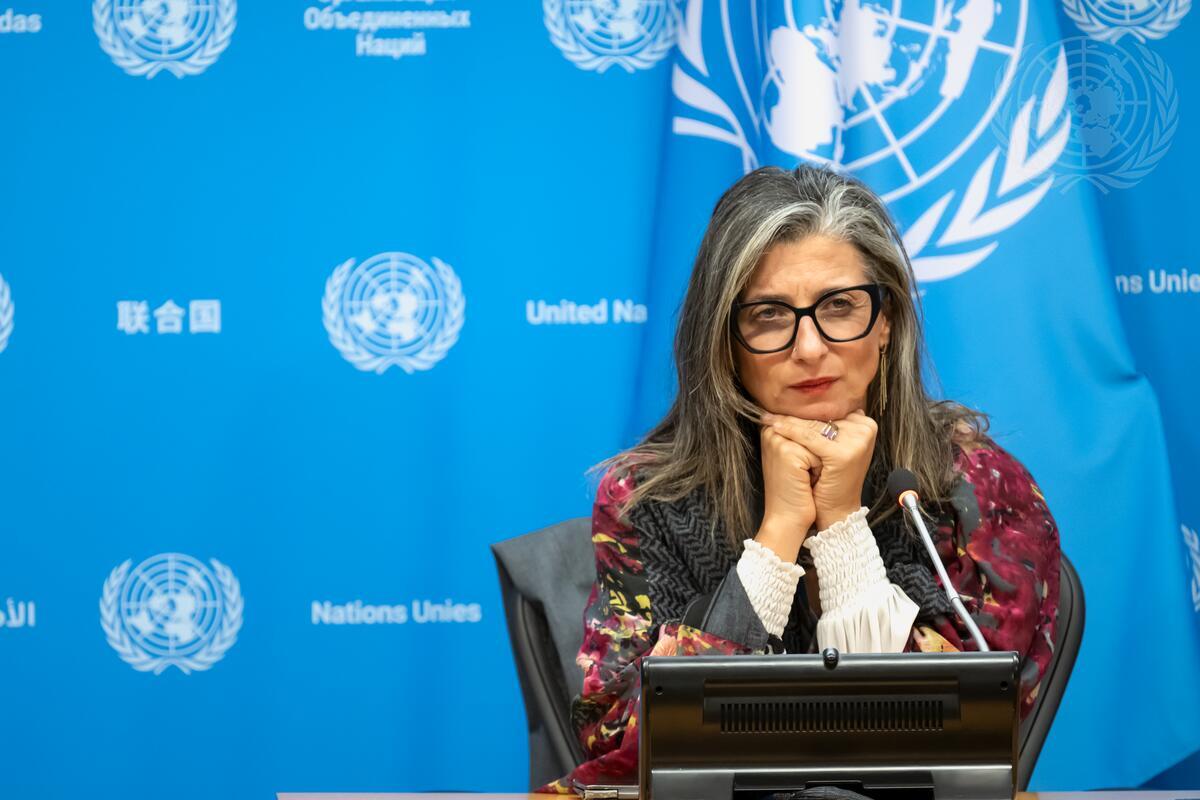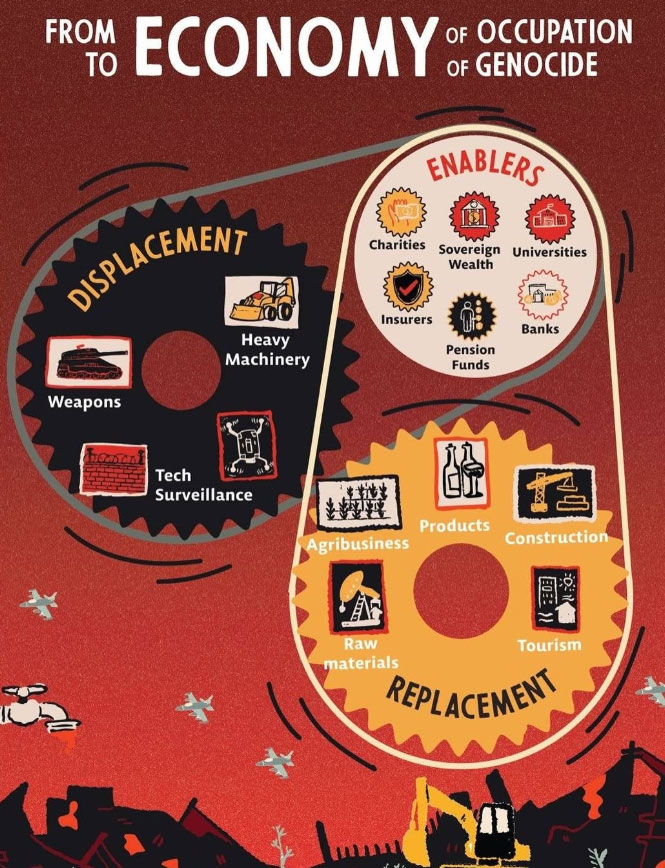"From occupation economy to genocide economy": the new report by the Special Rapporteur Francesca Albanese denounces corporate and academic complicity in the Israeli system in the Occupied Palestinian Territories

On the occasion of the 59th session of the United Nations Human Rights Council, the Special Rapporteur on the situation of human rights in the Palestinian Territories occupied since 1967, Francesca Albanese, presented her latest Report "From economy of occupation to economy of genocide" (dated June 30, 2025).
The document analyzes the evolution of the Israeli occupation in Palestine as a colonial project, fueled and supported by a large economic-industrial apparatus which, according to the Special Rapporteur, has reached a new stage: that of the "economy of genocide". “ While political leaders and Governments shirk their obligations, far too many corporate entities have profited from the Israeli economy of illegal occupation, apartheid and now genocide”, the Report states.
Key sectors such as the military industry, the technology sector, the financial system, and the academic system are deeply integrated into the infrastructure of the occupation. In particular, the Report documents how Israeli and multinational companies (including Elbit Systems, Lockheed Martin, Google, Microsoft, and Amazon) have provided tools, technologies, and logistical support that have fueled the massive use of force against the Palestinian civilian population. These collaborations include supplies of armaments, biometric surveillance systems, predictive analysis through artificial intelligence, and critical cloud services for military operations.
Albanese explicitly calls for international criminal responsibility not only of States but also of companies and their executives. The report emphasizes that international law imposes clear obligations regarding prevention, abstention, and disengagement from activities that fuel serious crimes, including genocide. The current complicity of companies, the Report states, represents "only the tip of the iceberg".
Particular attention is paid to the role of universities, considered an integral part of the apparatus of oppression, and their responsibility in perpetuating the apartheid regime and in producing knowledge, technologies, and narratives functional to the occupation. In this regard, we report in full paragraphs 82-86 of the Report:
82. In Israel, universities – particularly law schools, archaeology and Middle Eastern studies departments – contribute to the ideological scaffolding of apartheid, cultivating State-aligned narratives, erasing Palestinian history and justifying occupation practices. Meanwhile, science and technology departments serve as research and development hubs for collaborations between the Israeli military and arms contractors, including Elbit Systems, IAI, IBM and Lockheed Martin, and so contribute to producing the tools for surveillance, crowd control, urban warfare, facial recognition and targeted killing, tools that are effectively tested on Palestinians.
83. Leading universities, especially from the Global Minority, partner with Israeli institutions in areas directly harming Palestinians. At MIT, labs conduct weapons and surveillance research funded by the Israeli Ministry of Defense (IMOD) – the only foreign military financing MIT research. Notable IMOD-projects include drone swarm control – a distinct feature of the Israeli assault on Gaza since October 2023 – pursuit algorithms, and underwater surveillance. From 2019 to 2024, MIT managed a Lockheed Martin Seed Fund connecting students to teams in Israel. From 2017 to 2025, Elbit Systems paid for membership to MIT’s Industrial Liaison Program, enabling access to research and talent.
84. The European Commission (EC)’s Horizon Europe programme actively facilitates collaboration with Israeli institutions, including those complicit in apartheid and genocide. Since 2014, the EC has granted over €2.12 billion ($2.4 billion) to Israeli entities, including the Ministry of Defense, while European academic institutions both benefit from and reinforce this entanglement. The Technical University of Munich (TUM) receives €198.5 million ($218 million) in EC Horizon funding, including €11.47 million ($12.6 million) for 22 collaborations with Israeli partners, military and tech firms. TUM and IAI receive €792,795.75 ($868,416) to co-develop green hydrogen refuelling, technology relevant to IAI military drones used in Gaza. TUM partners with IBM Israel – which runs the discriminatory Israeli Population Registry – on cloud and AI systems, as part of IBM Israel’s €7.02 million ($7.71 million) Horizon funding. TUM also collaborates on a €10.76 million ($11.71 million) project called “seamless urban mobility” that includes the Municipality of Jerusalem, a city entrenching annexation through urban transportation. It is impossible to disentangle the expertise Israeli partners contribute to these partnerships from that gained and used in violations to which they are connected.
85. Many universities have upheld ties with Israel despite the post-October 2023 escalation. One of many British examples, the University of Edinburgh holds nearly £25.5 million ($31.72 million) (2.5 per cent of its endowment) in four tech giants – Alphabet, Amazon, Microsoft and IBM – central to Israel’s surveillance apparatus and the ongoing Gaza destruction. With both direct and indexed investments, it ranks among the UK’s most financially entangled institutions. The University also partners with firms aiding Israeli military operations, including Leonardo S.p.A. and Ben Gurion University via an AI and Data Science Lab, sharing research that directly links it with assaults on Palestinians.
86. This analysis only scratches the surface of the information received by the Special Rapporteur, who acknowledges the vital work of students and staff in holding universities to account. It casts a new light onto global crackdowns on campus protesters: shielding Israel and protecting institutional financial interests appears a more probable motivation than fighting alleged antisemitism.


